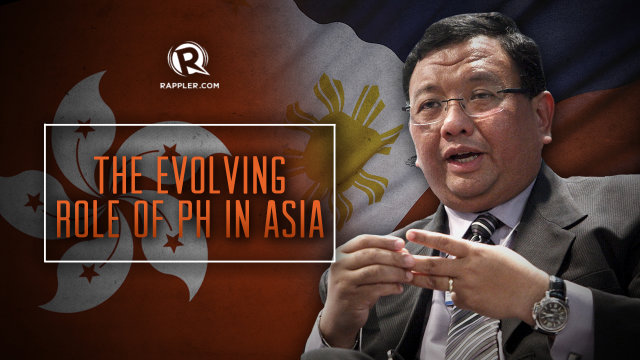SUMMARY
This is AI generated summarization, which may have errors. For context, always refer to the full article.

MANILA, Philippines – Rappler talks to Secretary to the Cabinet Rene Almendras.
After more than 3 years, the Philippines and Hong Kong finally ended their row over the 2010 bus hostage crisis. (READ: Hong Kong, Philippines resolve hostage crisis issue)
In August of 2010, a hostage-taking incident at the Quirino Grandstand resulted in the death of 8 Hong Kong nationals and the former policeman who held them hostage. After the event, relations between the two governments took a turn for the worse.
The Hong Kong government along with the survivors of the incident and the victims’ relatives have consistently demanded an apology from Manila for the bungled rescue. But President Benigno Aquino III has adamantly refused to issue an official apology, arguing it could create a legal liability.
Malacañang officials and administration allies have pointed out that China, which resumed sovereignty over Hong Kong in July 1997, has not paid compensation nor apologized to the families of Filipino tourists who were killed in two separate incidents in Tiananmen Square – first by a man with gripes against Japan, and last year by terrorists.
In January, Hong Kong announced the cancellation of the 14-day visa-free status for official and diplomatic Filipino passport holders, citing the Philippines’ refusal to apologize. The Philippines’ Department of Foreign Affairs (DFA) responded by offering “tokens of solidarity” yet Aquino made it crystal clear he would not budge. (READ: Hong Kong curbs PH’s visa-free privilege)
Despite this, on April 23, 2014, the Philippines and Hong Kong released a joint statement saying “the HKSAR Government and the Government of the Republic of the Philippines have agreed that the 4 demands made by the victims and their families on apology, compensation, sanctions against responsible officials and individuals, and tourist safety measures” had been resolved.
The resolution comes 7 months after the Asia-Pacific Economic Cooperation (APEC) Leaders’ Meeting in Bali, Indonesia, where Hong Kong Chief Executive Leung Chun-ying met with Aquino. During their discussion, Aquino and Leung agreed to do their best to resolve issue. New negotiations started that month, with Aquino appointing Almendras to represent the Philippines in the talks. (READ: Almendras: Palace did spade work in ending HK row)
The DFA states, “The Philippines looks forward to working with the Hong Kong government in turning a new page in bilateral relations.”
Almendras will talk to Rappler about mending the strained ties between Hong Kong and the Philippines and about the significance of the conflict in light of the South China Sea dispute. Where is the Philippines in its relationship with China? How does this tie up with US President Barack Obama’s upcoming visit to the Philippines? During his visit to Tokyo, Obama said the the US will defend Japan against China. Will the US be as protective of the Philippines? What does the Philippines gain from the new defense deal that allows increased access to Philippine bases? (READ: Obama in Tokyo backs Japan in China island row)
Watch the interview below.
Add a comment
How does this make you feel?
There are no comments yet. Add your comment to start the conversation.